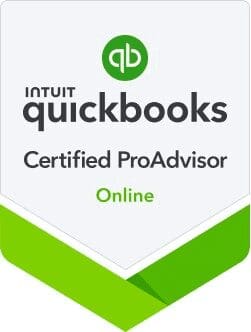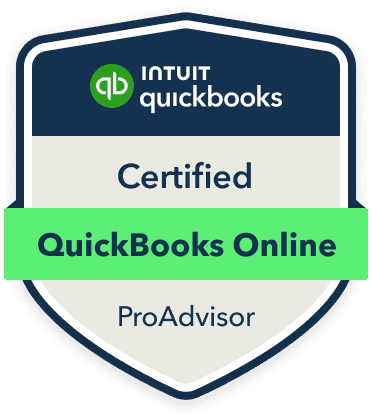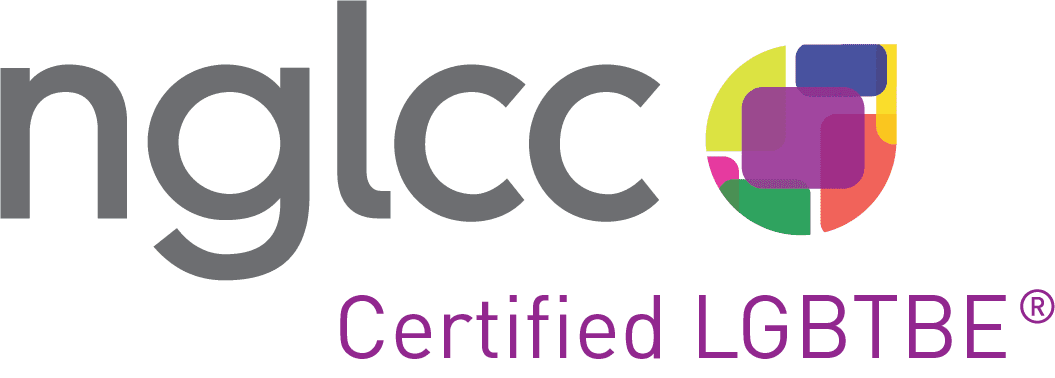Roofing contractors managing projects in Reno face unique financial challenges. Effective contractor accounting systems tailored to the roofing industry directly influence profitability, cash flow, and business sustainability. Many roofing projects span several months and involve significant material costs, making it crucial to have robust billing methods and financial tracking practices. Understanding how to structure billing, manage deposits, and monitor work-in-progress (WIP) helps roofing businesses maintain steady cash flow and accurately measure job profitability throughout a project’s lifecycle.

Progress billing paired with precise Work-in-Progress (WIP) accounting is more than a convenience; it is a survival strategy, especially for roofing contractors handling projects over $500,000 or lasting longer than a month. Billing clients incrementally in stages aligned with project milestones prevents cash flow gaps that could otherwise disrupt operations. Without progress billing, contractors risk waiting months for payment, forcing them to finance ongoing project costs out of pocket.
By breaking large projects into manageable billing segments, roofing contractors gain better control over their finances. Accurate WIP tracking ensures that costs incurred are matched with revenues recognized, providing a clear view of a job’s profitability as it proceeds. Roofing companies that invest in establishing these systems with expert guidance reap the benefit of strengthened cash flow and enhanced financial clarity.
We specialize in helping roofing businesses implement progress billing systems, draft contracts that protect cash flow, and leverage QuickBooks to track job-specific costs in real time. This approach equips roofing contractors with not just theoretical knowledge but practical tools, fostering a financially resilient operation capable of confidently taking on higher-value projects.
Smaller residential roofing jobs under $30,000 and typically completed within two weeks often fit well with completion billing, where invoicing occurs once the project finishes. This straightforward approach suits quick-turnaround projects with lower overhead costs and limited cash flow exposure. However, using completion billing for larger projects can strain a contractor’s finances severely.
For commercial roofing contracts exceeding $500,000, progress billing becomes indispensable. This method involves invoicing clients in increments tied to project milestones or percentages of completion, ensuring regular cash inflows throughout the job. The delay inherent in waiting to bill until project completion can create critical cash shortages that impede material purchases, labor payments, and overall project momentum.
Rought & Accounting helps roofing contractors assess which billing method fits each project, facilitates proper bookkeeping setups for handling multiple billing types, and trains teams to maintain accurate financial records. Through this tailored accounting approach, roofing businesses improve financial stability and maintain operational continuity across all project sizes.
Collecting a down payment upfront is a fundamental practice for roofing contractors to secure client commitment and fund initial job expenses. Industry standards recommend collecting between 10% and 30% of the contract value upfront, with 20% serving as a common benchmark. This deposit covers early material costs and signals client engagement.
Accounting for these deposits correctly is critical. Down payments should be recorded as “Customer Deposits” on the books until work begins, preventing premature revenue recognition and avoiding confusion during tax time. Properly handling these deposits ensures clear cash flow visibility and financial accuracy.
We assist contractors in accurately recording and managing deposits within their accounting systems, eliminating common pitfalls that can cause cash flow mismatches or tax reporting errors. With sound deposit accounting practices, roofing businesses obtain the financial breathing room necessary to start projects confidently and maintain strong client relationships.
Tracking actual job costs against billed amounts through Work-in-Progress (WIP) reporting is essential for managing roofing projects effectively. Without WIP reports, contractors risk either overbilling clients—which can erode trust—or underbilling, which can starve the business of needed working capital. Both outcomes damage profitability and client confidence.
By setting up detailed job costing within accounting software like QuickBooks, roofing contractors gain real-time insight into the financial status of each project. This includes monitoring labor, materials, subcontractor expenses, and overhead applied to jobs. WIP reporting provides the clarity required to adjust billing, control expenditures, and make strategic decisions before financial issues arise.
Our expertise lies in implementing WIP and job costing solutions tailored to roofing companies’ unique demands. Contractors benefit from transparent financial data that supports better cash flow planning, prevents costly mistakes, and positions their businesses for sustainable growth.
Effective contractor accounting turns roofing project challenges into manageable workflows that protect cash flow and enhance profitability. Progress billing and WIP tracking prevent cash shortages and provide ongoing profit visibility. Choosing the right billing method for each job size avoids unnecessary financial risk. Proper management of down payments secures funds upfront, reducing pressure on financial resources.
Roofing contractors in Reno looking to build stronger businesses can gain valuable support by partnering with experts who understand both the roofing industry and accounting best practices. Customized accounting strategies help businesses improve financial control, enabling them to bid confidently on larger projects and grow sustainably. Contacting Rought & Accounting provides access to personalized consultation, helping contractors design billing systems, job costing processes, and bookkeeping solutions tailored specifically to roofing operations. This collaboration improves cash flow management and overall business resilience—key factors for long-term success.
Navigating tax law changes can feel overwhelming, especially in construction where purchasing decisions and hiring processes directly impact your bottom line. The One Big Beautiful Bill Act introduces significant tax updates that affect contractors like you, from equipment write-offs to reporting requirements and expiring credits. Understanding these changes is essential to maintaining healthy cash flow and maximizing your business’s tax benefits. Partnering with a knowledgeable Reno accountant can ensure you stay ahead and fully leverage the opportunities ahead.

One of the most impactful changes is the restoration of 100% bonus depreciation for property acquired after January 19, 2025. This update means you can immediately deduct the full cost of qualifying assets such as equipment, trucks, tools, furniture, and software in the year you place them in service. Previously planned to drop to 40%, this full first-year write-off frees up cash flow by accelerating your return on investment and reducing taxable income significantly. Taking advantage of bonus depreciation now allows your construction business to reinvest savings into operations or new projects without delay. Careful timing of your purchases in consultation with your Reno accountant will be critical to maximize these benefits.
With this restored depreciation, budgeting for capital expenditures becomes more strategic. Instead of spreading the deduction over several years, you gain immediate tax relief that improves financial flexibility. This is particularly valuable in construction, where equipment costs tend to be substantial and ongoing. The ability to fully write off qualifying property right away encourages timely investments that keep your business competitive. Consulting a Reno accountant can help identify which assets qualify and ensure the proper documentation for smooth tax filing.
Starting January 1, 2026, the threshold for 1099 reporting will increase from $600 to $2,000 for payments made to subcontractors. This change reduces the administrative burden by limiting the number of smaller payments requiring detailed reporting. For your construction business, this means less paperwork when paying many subcontractors less than the new threshold, streamlining your year-end reporting process. However, maintaining accurate expense tracking remains essential to support deductions and meet IRS documentation requirements. Partnering with a Reno accountant ensures you adapt your bookkeeping practices effectively under these new rules.
While the reporting burden lessens, vigilance is necessary in managing subcontractor payments and documentation. Proper records will safeguard your business during tax audits or compliance reviews. The threshold increase is designed to ease paperwork, but your systems should continue to reflect true expenses reliably. An experienced Reno accountant can help set up or refine your processes to capitalize on these simplified reporting rules while maintaining solid financial controls. This foundation supports both compliance and sound business decisions.
Several tax credits crucial to your construction operations now require valid Social Security Numbers (SSNs) for eligibility, including the Child Tax Credit, American Opportunity Tax Credit, and Work Opportunity Tax Credit. For your hiring process, this means you must collect and verify SSNs early and accurately from all employees and subcontractors. Meeting these requirements is essential to securing credits that can significantly reduce your tax liability. Failing to do so risks losing valuable benefits and could trigger IRS penalties. A Reno accountant can guide you through updated verification procedures to ensure compliance and maximize your credits.
It’s also important to let your employees and subcontractors know about these tightened SSN requirements in advance. Clear communication helps avoid delays, ensures accurate records, and reduces the risk of missed credits. By preparing your team ahead of time, you’ll streamline the verification process and keep everyone aligned on what’s needed. A Reno accountant can provide the right guidance so you capture these credits without unnecessary complications.
Several important energy-related tax credits will expire soon, including Clean Vehicle Credits on September 30, 2025, and residential solar credits at the end of 2025. Planning equipment or renewable energy project purchases now is critical to take advantage of these incentives before they disappear. For construction businesses, investing in qualifying clean vehicles or solar installations can reduce upfront costs through tax credits, improving project feasibility and environmental responsibility. A Reno accountant can help analyze your options and time purchases strategically for maximum credit capture.
Missing these deadlines means losing out on financial incentives that can lower your effective tax rate and enhance business sustainability. The approaching expiration dates create urgency for contractors to act swiftly. Careful tax planning minimizes lost opportunities and supports your long-term goals in efficiency and cost savings. Consulting a Reno accountant informs your decisions about timing, eligibility, and documentation, positioning your business for optimal advantage before these credits phase out.
Each of these tax law changes impacts your construction operations differently, but together they highlight the need for careful tax planning and expert guidance. Reviewing how the One Big Beautiful Bill Act affects your current and upcoming projects will help create a robust tax strategy tailored to your business goals. Timely consultation with a Reno accountant enables you to schedule equipment purchases, verify documentation for credits, and streamline reporting workflows. Contact Rought & Accounting today to review these critical tax updates comprehensively, prepare for efficient compliance, and leverage incentives that support your growth in the Reno construction market.
Navigating the complexities of business finance can be challenging, but with the right strategies, it becomes a foundation for growth and stability. As a business owner in Nevada, mastering fundamental bookkeeping practices is essential. This article provides practical tips to help keep your business's financial records organized and efficient.

Accurate financial information is the cornerstone of strategic decision-making for any business. Implementing reliable accounting software isn't just about procedure—it's about choosing a tool that streamlines financial tracking and offers valuable insights. Regular updates to financial records are vital for maintaining their accuracy, ensuring you're always prepared for unexpected expenses or tax obligations. Moreover, organizing receipts and invoices effectively protects your business from potential tax issues and simplifies audit processes. By preparing for significant expenses and understanding upcoming tax deadlines, you can safeguard your business's financial health and ensure compliance with local regulations.
Whether you're managing a startup or a well-established company, these bookkeeping tips will strengthen your financial practices and contribute significantly to your business's success.
In today's digital world, robust accounting software is essential for businesses looking to streamline operations and enhance financial transparency. An efficient accounting system provides real-time financial information, aiding better decision-making and reducing the risk of human error.
Selecting the right accounting software can be overwhelming given the numerous options available. It's crucial to choose a system that fits your business's current needs and can scale as you grow. Key features to consider include invoicing, budget tracking, payroll processing, and tax preparation. Integration with other business tools, such as CRM systems, can further enhance efficiency.
Keeping financial records up-to-date is not just crucial for managing finances; it's vital for maintaining business health. Regular updates provide an accurate picture of your cash flow, helping you budget effectively and avoid financial discrepancies. Up-to-date records also simplify tax preparation and audits, reducing stress and potential errors.
Implementing a consistent schedule for updating your financial records is essential. Automated accounting software can streamline this process, ensuring all financial information is current and accurate. Regular consultations with professional accountants can also provide valuable insights into financial trends, tax obligations, and growth opportunities.
Properly organizing receipts and invoices is crucial for maintaining financial health and ensuring compliance with tax regulations. Moving from paper-based to digital tracking improves efficiency, making it easier to categorize and retrieve documents. Many software tools allow you to scan and categorize receipts automatically, integrating the information into your accounting system.
To effectively manage receipts and invoices, establish a consistent system for organization. Regularly updating and reviewing your records prevents last-minute stress, especially during tax season. Backing up digital data is also essential to protect against technical failures.
Effective financial management requires planning for major expenses and meeting tax deadlines. Set up a dedicated savings account for significant purchases and automate contributions to build your funds steadily. Understanding your financial obligations and setting realistic timelines and budgets are crucial for successful financial planning.
Seek professional guidance when managing complex financial goals and tax responsibilities. Accountants and financial planners can offer personalized advice, helping you navigate tax planning, maximize deductions, and plan strategically for large expenses. Utilizing budgeting apps and tax software can further streamline this process, reducing stress and ensuring you're prepared.
At Rought & Accounting, we understand the importance of maintaining strong client relationships through reliable financial management. By offering tailored bookkeeping services, we ensure businesses can focus on growth and long-term success. Our commitment to accuracy and client satisfaction drives our approach, helping you build trust with your clients and stakeholders.
In today’s fast-paced and digitally-driven financial landscape, virtual bookkeepers play an increasingly vital role in helping businesses streamline operations and optimize costs. As more companies adopt remote working environments, understanding how virtual bookkeeping integrates with modern finance is essential. This article explores what virtual bookkeeping entails, how it differs from traditional methods, and why it might be the right solution for your business.

At its core, virtual bookkeeping involves managing a business’s financial records remotely. Unlike traditional bookkeepers, virtual bookkeepers use the latest technologies to provide services from any location, offering flexibility and real-time financial insights. This shift reduces overhead costs and allows business owners to focus on strategic decisions rather than day-to-day financial operations.
Virtual bookkeeping offers numerous benefits, including cost efficiency and flexibility. By eliminating the need for physical office space and offering scalable services, businesses can manage finances more efficiently. Virtual bookkeepers bring expertise and access to advanced financial tools, ensuring that your business remains ahead in managing its finances.
Virtual bookkeeping has transformed the way financial records are managed. Leveraging digital platforms and cloud-based software, virtual bookkeepers handle transactions remotely, providing real-time updates without the need for in-person meetings. Unlike traditional bookkeeping, which involves physical documentation, virtual bookkeeping ensures data is securely stored and easily accessible, making it a more efficient and eco-friendly option.
Virtual bookkeepers offer a wide range of services, from data entry and ledger management to full-scale financial analysis and payroll processing. This shift to digital bookkeeping highlights the importance of technical proficiency in today's financial landscape.
The transition to virtual bookkeeping offers significant benefits. One of the primary advantages is the reduction of overhead costs. Without the need for physical storage or office space, businesses save on operational expenses. Additionally, virtual bookkeeping allows for easy scalability, ensuring that as your business grows, the services can grow with it without hiring additional staff.
Another advantage is the enhanced accuracy and timeliness provided by automation tools and real-time data processing. Virtual bookkeepers help businesses maintain up-to-date, accurate financial records, allowing for quicker decision-making in a competitive market.
Virtual bookkeeping also offers robust security features. Cloud-based systems provide advanced security measures, reducing the risk of local data breaches or physical theft. Features like data encryption and regular backups ensure that sensitive financial information is protected, giving business owners peace of mind.
In conclusion, virtual bookkeeping represents a significant advancement in financial management. By embracing modern technologies, businesses gain efficiency, security, and scalability, making virtual bookkeeping a smart option for forward-thinking companies.
Choosing the right virtual bookkeeper can streamline your financial processes and enhance decision-making. Look for professionals with industry-specific experience and familiarity with modern accounting tools. The right virtual bookkeeper will not only understand your financial needs but will also provide expert insights to help your business grow.
Before hiring a virtual bookkeeper, it’s essential to assess your business's specific financial needs. This includes evaluating the scale and complexity of your transactions and understanding any industry-specific challenges that may impact your bookkeeping. For instance, a business dealing with international transactions requires a bookkeeper experienced in handling foreign exchange and global finance regulations.
Effective communication is another crucial factor. Bookkeeping involves more than just crunching numbers—it often requires problem-solving and decision-making. Your virtual bookkeeper should be proactive in providing financial updates and insights and should communicate complex accounting terms clearly.
Lastly, consider the scalability of the services offered. As your business grows, so will your financial requirements. Ensure your virtual bookkeeper can scale their services accordingly, without sacrificing the quality or timeliness of reports.
Ready to streamline your bookkeeping and focus on growing your business? Contact us today to learn more about how our virtual bookkeeping services can meet your unique needs and evolve with your business.
In the bustling world of business, having dependable accounting services is not just beneficial—it’s essential. For businesses in Reno and beyond, a looming national accountant shortage poses new challenges and strategic demands. This shortage, driven by an aging workforce, fewer graduates entering the profession, and shifts caused by the COVID-19 pandemic, is impacting businesses at all levels. During the pandemic, many professionals in accounting adapted to remote work. However, some firm owners were slower to embrace this change, leading to an acceleration in retirements across both public and private sectors. As accountants moved up or transitioned from public to private roles, it created significant gaps in the workforce. Understandably, this shortfall could affect your operations, planning, and financial management.

The Scope of the Accountant Shortage
Between 2019 and 2022, more than 300,000 accountants left the industry, intensifying the accountant shortage in the United States. The combined factors of an aging workforce, changes in workplace expectations brought on by COVID, and fewer professionals entering the field have left a significant void. As senior accountants retire, the shortage of qualified replacements means businesses must now reconsider their financial strategies and find alternative ways to handle essential accounting tasks. For Reno businesses, understanding this shortage is key to planning future financial operations and maintaining smooth financial management.
Impact on Reno’s Small and Medium Businesses
Small and medium-sized enterprises (SMEs) in Reno are particularly vulnerable to the accountant shortage. These businesses often operate with limited resources, making them more susceptible to challenges like delayed financial reporting, compliance issues, and hindered growth due to a lack of strategic financial guidance. The shortage forces businesses to consider alternative solutions, such as outsourcing their accounting functions or adopting more sophisticated software.
Adaptive Strategies and Solutions for Reno Businesses
Thankfully, there are adaptive strategies that businesses in Reno can adopt to mitigate the impact of the accountant shortage. Leveraging technology, such as advanced accounting software and automation tools, can help streamline financial tasks. Additionally, outsourcing accounting services to specialized firms can bridge the gap created by the shortage.
At Rought & Accounting, we offer personalized solutions tailored to help businesses navigate these turbulent waters effectively. Whether it’s providing expert advice or handling day-to-day accounting tasks, we ensure that your business continues to run smoothly despite the national shortage.
Economic and Educational Drivers Behind Reno's Accountant Shortage
The national accountant shortage is driven by both economic and educational factors. The demand for accountants has surged as businesses grow and financial regulations become more stringent. At the same time, fewer students are choosing accounting as a career due to perceptions that it lacks dynamism compared to other fields like technology. Moreover, the rigorous CPA exam further discourages potential candidates from entering the profession.
This shortage is further compounded by the inability of educational institutions to keep up with modern accounting technologies, such as artificial intelligence and blockchain, leaving new graduates underprepared for the demands of today’s accounting landscape.
Future Outlook of Accounting Careers in Reno
The future of the accounting profession is changing, with a growing focus on technology integration and evolving business environments. Automation, AI, and data analytics are becoming increasingly important, reshaping the role of accountants from traditional number crunchers to strategic business advisors. Accountants who adapt to these changes and stay ahead of technological trends will find themselves in high demand, especially as businesses continue to rely on their expertise for more complex decision-making processes.
Contact Rought & Accounting today to learn how our expert accounting services can help your business overcome the challenges posed by the national accountant shortage, ensuring your financial stability and success.
As tax season approaches, residents and small business owners in Reno often face the daunting task of organizing their financial affairs for timely and accurate tax filing. Whether you're a seasoned filer or tackling this responsibility for the first time, understanding the strategies that local tax preparers recommend can transform your tax preparation experience. Rought & Accounting in Reno, a trusted name in personalized tax services, offers insights that can not only streamline your tax process but also enhance your financial outcomes.

Maintaining organized financial records throughout the year is a crucial first step recommended by tax experts. This practice eases the burden of tax filing and ensures that all deductions and credits are properly accounted for. Understanding the nuances of these financial benefits, such as what qualifies for a deduction or a credit, can significantly impact your tax liabilities and returns. Moreover, honesty and accuracy in your financial records are paramount. These records form the foundation upon which tax professionals like those at Rought & Accounting base their evaluations and advice. Additionally, staying informed about the latest tax laws and updates can make a major difference in your tax preparation strategy, helping you avoid last-minute confusion and potential errors.
Maintaining an organized system for managing financial records is not just a necessity for businesses but also an empowering strategy for individual consumers. The ability to swiftly locate financial documents can save time and mitigate stress when handling unexpected financial situations or during tax season. Establishing a year-round organization system helps you stay on top of your financial health.
Start by determining what documents should be kept and for how long. Essential documents such as tax returns, major financial records, and legal contracts should be retained for a minimum of seven years. Other items like utility bills, credit card statements, and bank statements should be kept until you have confirmed the accuracy of the transactions and filed any related tax deductions. Organizing these documents into clearly labeled categories, whether digitally or in physical folders, makes retrieval straightforward and quick.
Digital organization has become a favored method due to its convenience and the added security features available. Using cloud storage solutions with encryption protects sensitive information from theft and environmental damage. Additionally, many financial institutions now offer digital statements and document storage that can be integrated into personal financial management software. This reduces physical storage needs and allows easy access across multiple devices with appropriate security measures in place.
Tax season can often feel overwhelming with its myriad forms and regulations. Yet, among the complexities, deductions and credits stand out as the superheroes of tax savings, directly reducing how much you owe to the state or federal government. These financial incentives encourage specific behaviors like investing in green technologies, pursuing higher education, or supporting charitable causes. While both reduce your tax burden, deductions lower the income you're taxed on, whereas credits decrease your tax bill dollar-for-dollar.
To effectively utilize deductions, it's crucial to understand the difference between standard and itemized deductions. The standard deduction, a set amount determined by your filing status, simplifies the process but might not provide the savings of itemized deductions, where you calculate relevant expenses. Common itemized deductions include mortgage interest, state and local taxes, and medical expenses exceeding a certain percentage of your income. Deciding whether to itemize or take the standard deduction depends on which scenario offers the greater tax benefit. Planning and record-keeping are essential to substantiate your deductible expenses.
For individual taxpayers, understanding personal tax credits can lead to significant savings. Common credits include the Earned Income Tax Credit (EITC) for low to moderate-income workers and families, the Child and Dependent Care Credit for parents incurring childcare costs while working or studying, and Education Credits for those pursuing post-secondary education. Each credit has specific qualifications and can sometimes be refundable, meaning they could reduce your tax liability below zero and result in a refund.
Business owners can also reduce their tax burden through credits aimed at fostering certain activities. For example, the Small Business Health Care Tax Credit helps small businesses and tax-exempt organizations afford the cost of covering their employees. Moreover, the Research and Development (R&D) Tax Credit incentivizes businesses of all sizes to pursue innovation within their industries. These credits not only lower tax liability but also support business growth and operational goals.
In essence, understanding the intricacies of deductions and credits is key to maximizing your tax refunds or minimizing what you owe. Whether you're an individual taxpayer or a business owner, consulting with a tax professional who can help you navigate the options and plan accordingly is wise. This knowledge aids in compliance with tax laws and optimizes financial performance, aligning strategically with personal and business finances.
In today's fast-paced business environment, maintaining accurate and honest records is not just a legal duty but a strategic asset. Accurate financial records are crucial for understanding your business’s financial health, making informed decisions, and ensuring compliance with tax laws and regulations. For Rought & Accounting, the importance of this cannot be overstated, as it significantly influences the firm's reliability and reputation.
Accurate record-keeping provides detailed and clear insights into the profitability and financial status of your business. It allows you to identify strengths, weaknesses, and opportunities for improvement. When your financial records are in order, assessing new strategies for growth becomes much easier. This practice helps in internal management and boosts consumer confidence, enhancing relationships with investors and creditors.
Moreover, accurate records reduce the chances of financial mismanagement and fraud. They act as a check and balance, ensuring that every transaction is accounted for and can be traced back to its source. For consumers, this transparency builds trust and assures them of your business’s integrity. Furthermore, such practices improve your standing with search engines, as online mentions of your company will likely be positive due to fewer financial discrepancies and customer complaints.
Tax laws are constantly evolving, making it imperative for consumers to stay informed about the latest changes that could affect their financial health. Tax law adjustments can have significant implications on personal finances, business operations, and investment decisions. Understanding these changes not only helps in complying with the law but also in optimizing tax liabilities. At Rought & Accounting, we dedicate ourselves to dissecting these complex alterations and simplifying them for our clients.
Every year, various adjustments to tax laws occur at both federal and state levels. These can range from shifts in tax brackets and changes in deductions and credits to new regulations affecting retirement savings or healthcare benefits. For individuals, this could mean different strategies for filing taxes, potentially leading to significant savings or avoiding legal penalties. For businesses, staying updated could affect everything from payroll to profit margins.
The main reason staying informed about tax law changes is essential is compliance. Failing to adapt to new laws can result in fines and penalties. However, the benefits extend beyond mere compliance. For individual taxpayers, understanding how new tax laws impact their deductions, credits, and overall tax liability can lead to substantial financial savings. For businesses, it can influence strategic decisions related to business structure, employee benefits, and expense management.
Moreover, tax laws are influenced by political and economic conditions, meaning they can change frequently and sometimes drastically during economic downturns or when new administrations take office. Consumers who stay informed can adjust their financial planning strategies accordingly to take advantage of beneficial changes and mitigate adverse effects from others.
As a business owner or financial manager in Nevada, keeping your financial records accurate and up-to-date is crucial. One of the most important financial statements you can maintain is the balance sheet. This document provides a snapshot of your company’s financial health, listing assets, liabilities, and equity at a specific point in time. In this article, we'll explore why having an up-to-date business balance sheet is essential for bookkeeping services in NV.
An accurate balance sheet is fundamental for precise financial reporting. It ensures that all assets and liabilities are correctly recorded and that your financial statements reflect the true state of your business.
A current balance sheet provides a clear picture of your business’s financial health. It helps you track your assets, liabilities, and equity, allowing you to see what you own and owe at any given time. This clarity is crucial for day-to-day management and long-term planning. Our bookkeeping services in NV include regular updates to your balance sheet, providing a transparent view of your financial standing.
Regularly updating your balance sheet helps prevent errors and discrepancies in your financial records. By maintaining accuracy, you can avoid costly mistakes that could affect your business’s financial stability. Rought & Accounting offers meticulous bookkeeping services in NV to ensure your balance sheet remains accurate and up-to-date.

Maintaining an up-to-date balance sheet is not just good practice; it’s also a legal requirement. Compliance with state and federal laws is essential to avoid penalties and ensure your business operates smoothly. Our bookkeeping services in NV ensure your records comply with all necessary regulations.
In Nevada, businesses must comply with specific financial reporting standards. An up-to-date balance sheet ensures you meet these requirements, reducing the risk of legal issues and penalties. Rought & Accounting stays abreast of the latest regulations, providing you with compliant bookkeeping services in NV.
Should your business undergo an audit, having an accurate balance sheet simplifies the process. It provides auditors with a clear and concise view of your financial status, making it easier to verify your records and ensure compliance. Our bookkeeping services in NV prepare your financial records for audit readiness.
An up-to-date balance sheet is a powerful tool for making informed financial decisions. It provides the data you need to plan for the future, manage resources effectively, and drive your business towards growth. Utilize our bookkeeping services in NV to enhance your financial decision-making.
By analyzing your balance sheet, you can identify trends and make strategic decisions about investments, expenses, and resource allocation. This proactive approach helps you set realistic goals and achieve sustainable growth.
Understanding your current financial position allows you to manage cash flow more effectively. You can identify periods of surplus and shortfall, ensuring you have enough liquidity to meet your obligations and seize opportunities.
A well-maintained balance sheet is a key factor in attracting potential investors. It demonstrates your business’s financial stability and growth potential, making it more appealing to those looking to invest.
Investors want to see that your business is well-managed and financially healthy. An up-to-date balance sheet builds trust by showing that you maintain accurate financial records and have a clear understanding of your financial position. Rought & Accounting's bookkeeping services in NV help build investor confidence.
A comprehensive balance sheet can highlight your business’s growth potential. By showcasing your assets, liabilities, and equity, you provide investors with the information they need to evaluate the viability and profitability of their investment. Our bookkeeping services in NV ensure your balance sheet accurately reflects your business's growth potential.
For tailored bookkeeping services in NV, reach out to Rought & Accounting today. Our experienced team is dedicated to helping you keep your financial records accurate and current, ensuring the health and compliance of your business. Contact us today and get information on maintaining an accurate business balance sheet and to explore more about our comprehensive services.
Managing payroll can be a daunting task for any business, but in Nevada, it carries specific challenges and responsibilities. Ensuring compliance with state laws, maintaining accurate records, and leveraging technology can make the difference between smooth operations and financial headaches. In this article, we’ll explore why Nevada payroll services are essential for business financial health and how partnering with a professional service like Rought & Accounting can streamline your processes.

Nevada has unique payroll requirements that businesses must adhere to. These include understanding state tax implications, such as the Modified Business Tax (MBT) and various state-specific reporting mandates. For instance, Nevada requires employers to report new hires and remit unemployment insurance taxes.
Ensuring compliance with these regulations is critical. Failure to do so can result in significant penalties and interest charges. By understanding these requirements, businesses can better navigate the complexities of payroll management in Nevada, ensuring they meet all legal obligations.
Accurate payroll management is not just about paying employees on time; it’s a crucial aspect of maintaining legal compliance and avoiding costly penalties. Inaccurate payroll can lead to discrepancies in tax filings, which may trigger audits and fines from state and federal agencies.
Moreover, accurate payroll records are vital for financial planning and auditing purposes. They provide a clear picture of labor costs, helping businesses make informed decisions about budgeting and workforce management. By ensuring that payroll is handled correctly, businesses can avoid legal pitfalls and improve their financial health.
In today’s digital age, leveraging technological solutions for payroll management can significantly enhance efficiency and accuracy. Payroll software and automation tools streamline the entire process, from calculating wages and withholding taxes to generating pay stubs and filing tax returns.
These solutions offer several benefits, including reduced human error, time savings, and improved data security. Automated systems can easily integrate with other business software, providing a seamless workflow and real-time reporting. For businesses in Nevada, adopting these technologies can simplify payroll management and ensure compliance with state-specific regulations.
Several Nevada businesses have seen substantial improvements in their financial health by partnering with competent payroll service providers like Rought & Accounting. For example, a mid-sized manufacturing company in Reno was struggling with frequent payroll errors and compliance issues. By outsourcing their payroll to Rought & Accounting, they were able to reduce errors, ensure timely tax payments, and focus more on their core operations.
Another case involves a Las Vegas-based hospitality business that implemented payroll software recommended by Rought & Accounting. This change resulted in a 30% reduction in payroll processing time and a significant decrease in administrative costs.
These case studies highlight the tangible benefits that professional payroll services can offer. They demonstrate how businesses can improve operational efficiency, reduce costs, and maintain compliance by leveraging expert knowledge and technological solutions.
If you’re a business owner, financial officer, or HR professional in Nevada, understanding and managing payroll effectively is crucial for your company’s success. Rought & Accounting offers personalized payroll solutions tailored to meet the unique needs of Nevada businesses.
Contact Rought & Accounting today for a consultation, or visit our website to learn more about our comprehensive payroll services and how we can help enhance your business’s financial health.
Running a business in Reno comes with many responsibilities, and managing payroll is one of the most critical tasks. Ensuring that your employees are paid accurately and on time, while complying with all relevant regulations, can be challenging. Choosing the right payroll service can help alleviate this burden and improve your business’s efficiency. In this article, we’ll guide you through the process of selecting the best Reno payroll services to meet your business needs.

The first step in choosing the right payroll service is to understand the various types available. Payroll services range from basic payroll processing to more comprehensive solutions that include tax filing, direct deposit, and employee self-service portals.
For small businesses, a basic payroll service that handles wage calculation and direct deposit might be sufficient. However, larger businesses or those with more complex needs might benefit from a full-service payroll provider that can manage everything from tax compliance to benefits administration. Assess your business’s specific needs to determine which type of payroll service is right for you.
Nevada has specific payroll regulations that businesses must adhere to, including wage and hour laws, tax filing requirements, and employee record-keeping rules. Ensuring compliance with these regulations is crucial to avoid penalties and legal issues.
When choosing a payroll service, look for providers that are knowledgeable about Nevada’s specific requirements. A reputable payroll service will help ensure that your business complies with all state and federal laws, reducing the risk of costly fines and providing peace of mind.
Another important factor to consider is how well the payroll service integrates with your existing business systems. Efficient integration can streamline your operations, reduce manual data entry, and minimize errors.
Many payroll services offer integration with popular accounting software, human resources management systems, and time-tracking tools. Before selecting a payroll service, ensure it can seamlessly connect with the tools your business already uses. This will save you time and help maintain accuracy across all your business processes.
Cost is always a key consideration when selecting a payroll service. It’s important to evaluate the pricing structure of different providers to ensure it fits within your budget. Some services charge a flat fee, while others may have variable costs based on the number of employees or the specific features you need.
In addition to considering the cost, it’s essential to assess the return on investment (ROI) that a payroll service can provide. A high-quality payroll service can save your business time and money by reducing errors, ensuring compliance, and freeing up your staff to focus on other important tasks. Weigh the benefits against the costs to determine the overall value for your business.
Choosing the right payroll service is a critical decision that can significantly impact your business’s efficiency and compliance. By understanding the different types of payroll services, ensuring compliance with Nevada regulations, integrating with existing systems, and evaluating cost and ROI, you can make an informed choice.
Contact Rought & Accounting today to discuss your payroll needs and schedule a consultation. Our team of experts is ready to provide tailored payroll solutions designed to help your Reno-based business thrive.
Reno, Nevada, is rapidly becoming a hotspot for startups, thanks to its supportive ecosystem, strategic location, and growing tech scene. For entrepreneurs, investors, and anyone interested in economic development, understanding Reno's startup ecosystem can provide valuable insights into the opportunities and challenges that come with starting a business in this dynamic city.

Startups in Reno are significant job creators, especially in the technology and sustainable industries. Over the past few years, the city has seen a surge in new businesses, which has contributed to lower unemployment rates and provided a variety of job opportunities for the local workforce.
The Economic Development Authority of Western Nevada (EDAWN) reports that nearly 100 startups have sprung up in the Reno-Sparks area in just two years. These startups are not only creating jobs but are also attracting skilled professionals to the region, further enhancing the local talent pool.
Reno's startup ecosystem is a breeding ground for innovation and technology growth. The influx of startups brings new technologies and stimulates innovation, positioning Reno as a tech hub in Nevada. This growth is supported by various local resources and initiatives aimed at fostering entrepreneurship.
Institutions like the University of Nevada, Reno’s Innevation Center and the Reno Collective co-working space provide startups with access to mentorship, networking opportunities, and essential resources. These hubs are crucial for tech startups looking to develop cutting-edge solutions and bring them to market.
Traditionally known for its gaming and tourism industries, Reno is now seeing significant economic diversification thanks to the rise of startups. This diversification reduces economic volatility and makes the local economy more resilient to industry-specific downturns.
Startups in fields such as renewable energy, fintech, and advanced manufacturing are broadening the economic base of Reno. This shift is crucial for long-term economic stability and growth, as it mitigates the risks associated with dependence on a few major industries.
The growth of startups in Reno has a positive impact on community development. Increased business activity leads to more community projects and enhancements in public infrastructure and services. This, in turn, improves the quality of life for residents and makes the city more attractive to potential investors and entrepreneurs.
Events like the Reno Startup Week and the support from organizations like StartUpNV and Nevada SBDC play a pivotal role in building a vibrant entrepreneurial community. These initiatives foster collaboration, drive innovation, and create a sense of community among local businesses.
If you're considering starting a business or investing in Reno, now is the time to explore the opportunities within this thriving startup ecosystem. Contact Rought & Accounting for a consultation to learn how our expert financial advice and strategic planning can enhance your entrepreneurial journey. We offer tailored solutions to help you navigate the challenges and maximize the opportunities in Reno's dynamic market.



